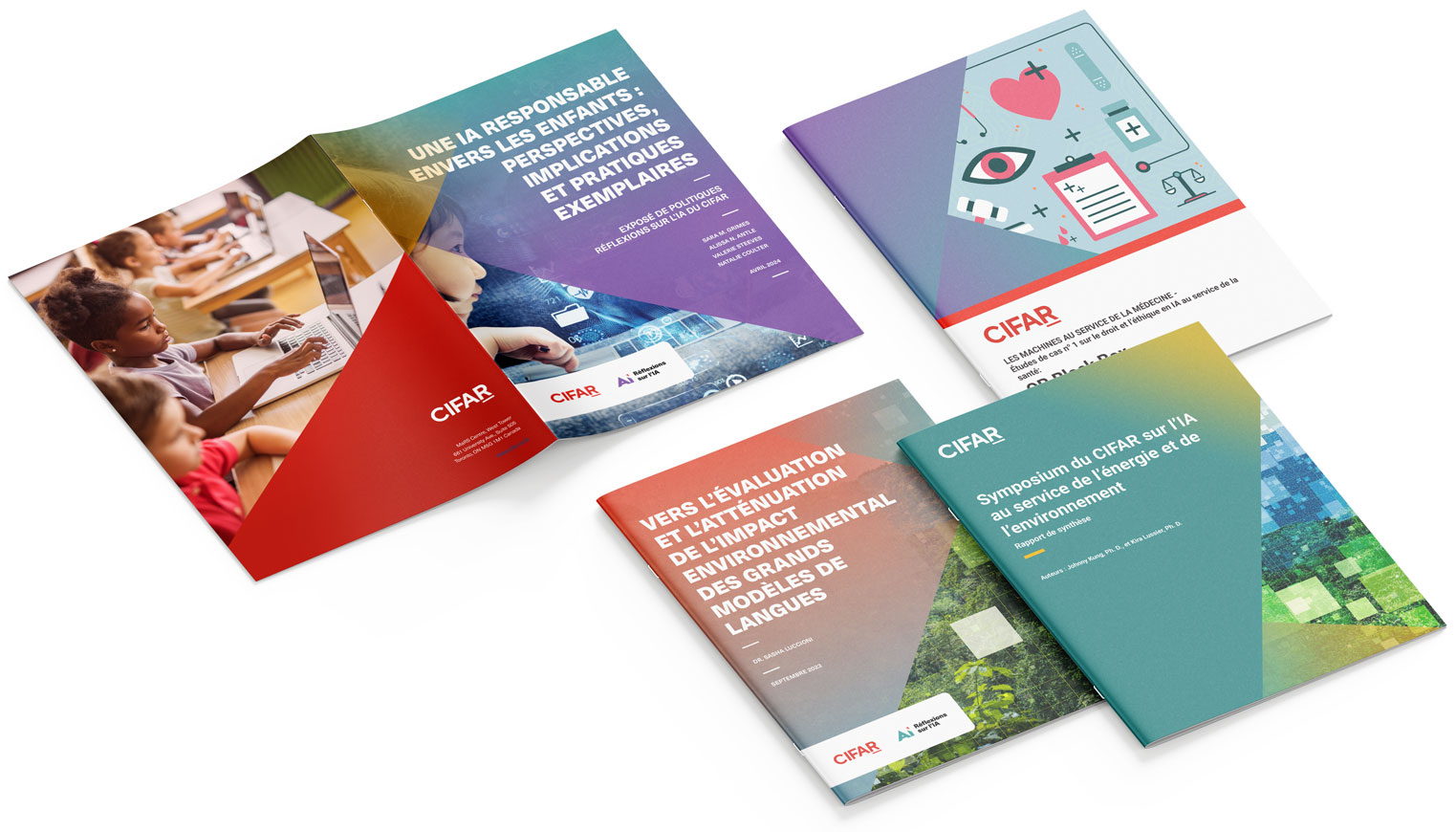IA et Société
Une meilleure IA pour le bien commun
Approfondir notre compréhension des répercussions éthiques, juridiques, politiques et sociétales de l’IA.

Publications IA et société du CIFAR
Dans le cadre de la Stratégie pancanadienne en matière d’IA, le CIFAR organise des réunions interdisciplinaires avec des leaders du Canada et du monde entier sur les nombreux impacts actuels et émergents de l’IA sur la société. Nombre de ces discussions font l’objet de rapports qui sont mis à la disposition des responsables des politiques et du public intéressé.
Communiquez avec nous
Vous avez des questions au sujet de la Stratégie pancanadienne en matière d’intelligence artificielle?
Soutenez-nous
L’Institut canadien de recherches avancées (CIFAR) est une organisation de recherche d’influence mondiale fièrement basée au Canada. Nous mobilisons les plus brillants personnes du monde, dans toutes les disciplines et à tous les stades de carrière, pour faire progresser les connaissances transformatrices et résoudre ensemble les plus grands problèmes de l’humanité. Nous recevons l’appui des gouvernements du Canada, de l’Alberta et du Québec, ainsi que de fondations, de particuliers, d’entreprises et d’organisations partenaires du Canada et du monde entier.

